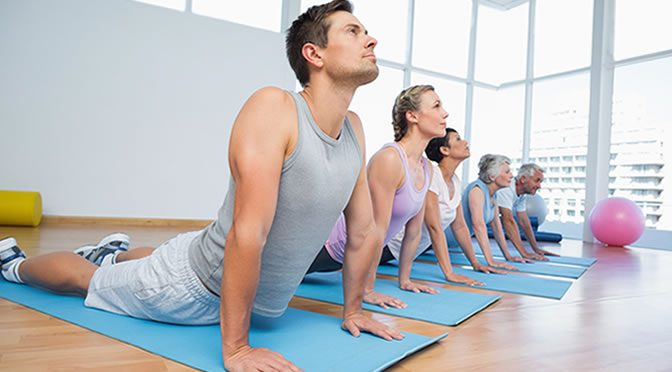An ancient form of meditation and exercise can have a beneficial effect on symptoms and quality of life in people who suffer from these problems.
Yoga, a popular mind-body practice, has accumulated promising evidence that it improves conditions such as asthma, cardio-metabolic risk and pelvic health.
At the moment 300 million people worldwide suffer from asthma.
They main symptoms are chest tightness, shortness of breath, wheezing and coughing.
A new review of evidence published in the Cochrane Library suggests that yoga can relieve asthma-related problems (Yang et al., 2016).
This review summarized different studies on participants with mild to moderate asthma who were given yoga exercises over a period of time.
These studies looked into the effects of yoga on breathing, meditation and posture.
The results show that yoga can improve people’s quality of life.
Dr Zuyao Yang, the lead author of this review, said:
“Our findings suggest that yoga exercise may lead to small improvements in asthma quality of life and symptoms.
However, it is unclear whether yoga has a consistent impact on lung function and we don’t yet know if yoga can reduce people’s medication usage, or if there are any side-effects of yoga for people with asthma.”
Yoga can also improve heart disease and metabolic syndrome (the medical term for a combination of diabetes, high blood pressure and obesity).
The positive benefits of yoga on heart health and its potential as a therapy for cardiovascular disease have recently been reviewed and published in the European Journal of Preventive Cardiology (Chu et al., 2016).
One study also suggests that yoga therapy can help women with urinary incontinence.
A yoga program was designed to improve pelvic muscle strength.
The results showed that women who suffer from urinary incontinence can avoid accidental urine leakage and gain more control over their urination.
Dr Alison Huang, the first author of this study, said:
“Yoga is often directed at mindful awareness, increasing relaxation, and relieving anxiety and stress.
For these reasons, yoga has been directed at a variety of other conditions — metabolic syndrome or pain syndromes — but there’s also a reason to think that it could help for incontinence as well.”
The study was published in Female Pelvic Medicine & Reconstructive Surgery (Huang et al., 2014).
Yoga image from Shutterstock
